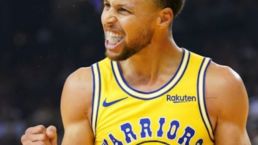Dan Reed, Facebook Vice President of Global Sports and Media Partnerships, believes that ‘athletes are their own media companies’.
It’s undeniable that athlete influencers hold huge marketing power by managing to disseminate messages on a global scale. It’s a skill that even the very best marketers struggle with. But because of their exponential significance, athletes are able create a unique media space for themselves.
There’s a definite trend developing in the entertainment industry whereby celebrities no longer take part in interviews. Instead, they release statements on social platforms. This is where sites such as The Players’ Tribune (which takes pride on being “The Voice of the Game”) have increasing influence.
Social media has a direct impact on our lives and cultural codes. Sure, it can be toxic; but it also has the power to be extraordinary. The significance of athletes goes further than the field of play: they can create their own media brand while simultaneously motivating change and promoting a positive culture.
Brands are quickly catching on to the reach of sporting stars – social media is particularly important here – which means athletes can secure hugely lucrative deals. Footballer Cristiano Ronaldo signed a $1 billion lifetime deal with Nike in 2016; tennis player Naomi Osaka secured an $8.5million deal with adidas in 2018.
Many were perplexed, however, when Basketball’s Golden State Warriors’ point guard Steph Curry opted for a $4 million a year deal with Under Armour in favour of his previous endorsement deal with Nike. He is doing something different to most athletes by developing his own media company, beyond endorsement partnerships.
Like American Football hero Tom Brady of the New England Patriots (Tom vs. Time), Curry is to star in Stephen vs. The Game. The docuseries, to be aired on Facebook Watch, takes a look at Curry’s life both on and off the court, giving fans VIP access into his world.
While our sporting idols often motivate and inspire us, it is easy to feel somewhat inferior to them. By allowing insights into their lives, their practices and their secrets, fans can relate to them on a human level and become part of the same environment. Content that enables fans to feel closer to their idols results in a seismic shift in audience engagement. As a consequence, athletes have developed their own “brands”.
The career of a superstar athlete, while being an invigorating one, is time-restricted. Athletes who take the initiative to build a media brand ensure a sustainable career when their athletic one comes to an end.
Facebook is now actively realising the significance of athletes being their own media brand. It would seem appropriate, therefore, that International Federations, rights holders and clubs take a similar approach in building and developing audience experience through working together and sharing ambitions and beliefs.
Gone are the days when content created a divide between athlete and fan: unity enables any sport to flourish.





